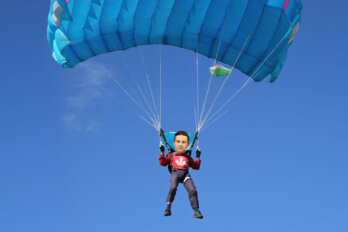“Nobody knew. It was top secret,” says John Kirk, over the phone from Halifax. “But if you looked carefully, you would have seen men in dark suits—Cuban security—checking the Halifax airport in the days before.”
Kirk, a longtime professor of Spanish and Latin American studies at Dalhousie University, is one of Canada’s foremost academic experts on Cuba. Earlier this month, he began hearing whispers in Havana about what proved to be the most significant change in Cuban-American relations in a half century: Barack Obama’s move to restore full diplomatic relations after decades of US isolation.
Kirk began visiting the island country in 1976—ninety-one times at last count. When former Nova Scotia premier John Savage led two trade delegations to Cuba in the mid–1990s, the professor was there to interpret his conversations with Fidel Castro. (At a 1996 ceremony to honour Castro’s seventieth birthday, Kirk was erroneously introduced as the president of Scotland; he presented the leader with a model of the Bluenose.)
The friendly ties between Cuba and Nova Scotia run surprisingly deep. Almost twenty years ago, in collaboration with Savage, the RCMP, Cuban security, and the Cuban ambassador, Kirk hatched a plan to bring Castro to Dalhousie, as a guest lecturer of sorts. Imagine it: Sitting in a second-year course on pre-revolutionary Cuba, notebook open, waiting for a lecture about how Fidel Castro, his brother Raúl, Che Guevara, and a handful of others built a revolution from the rugged Sierra Maestra mountains in the late 1950s—when in walks the man himself, presumably dressed in his characteristic fatigues.
The proposition had many unknowns. As Kirk recalls, Castro had wanted to visit the president of France, François Mitterrand, a longtime friend who was ailing with prostate cancer, with a stopover in Nova Scotia en route. Kirk didn’t know if Castro would be in Halifax for one or five days; nonetheless, he suggested to the ambassador that El Presidente might visit his class. The leader loved the idea.
Castro has a longstanding passion for free and accessible education, which became one of the primary tenets of the 26th of July Movement. In the first decade following Cuba’s revolution, his new socialist government nationalized educational institutions. Today, Cuban schooling at every level—from daycare through doctorate—is free.
Two days before the scheduled visit, at about the same time that Cuban security was sweeping the Halifax airport, Kirk stood before his class: “I told them, ‘I can’t say why, but I strongly suggest you come to class on Thursday. We’ll have a guest speaker, and [later] you’re going to tell your kids about it.’”
One day before the scheduled visit, everything looked promising. Several varying itineraries were in play, but by every indication, Castro would come to Dal. But around midnight, Kirk got a call. “The eagle’s not going to land,” he remembers Savage telling him.
On the day of the scheduled visit, Kirk went to his class crestfallen. Every student was there, but history was not to be made.





